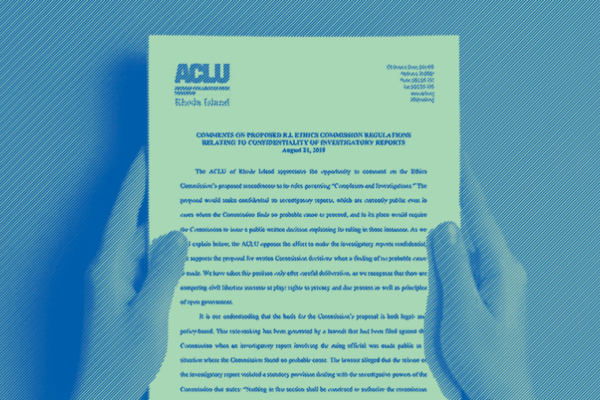The Rhode Island ACLU has today appealed the recent court decision upholding the constitutionality of the Town of Narragansett’s highly-publicized “orange sticker” ordinance.
The ordinance authorizes police both to charge tenants and landlords for allowing “unruly gatherings,” and to place orange stickers on houses that have allegedly been the site of such gatherings. Under the ordinance, the orange sticker cannot be removed until the end of the school year without financial penalty, regardless of the presence or absence of the original ‘unruly’ tenants who allegedly engaged in a violation of the law. The lawsuit, filed by ACLU volunteer attorney H. Jefferson Melish, was on behalf of the URI Student Senate, as well as four students and three landlords who have been affected by enforcement of the ordinance.
Among other things, the ACLU argued that the ordinance was unconstitutionally vague and that it violated the plaintiffs’ due process rights by allowing police to affix the large orange stickers to the front door of a rental property with no opportunity for a hearing either before or after the posting. In upholding the ordinance, the judge held that police officers’ discretion was limited since the sticker could be posted only if the police concluded that an underlying violation of the law, such as underage drinking, had taken place at the residence. However, the judge acknowledged that police did not actually have to charge anybody with the underlying “violation.” Although the judge agreed that “the result sits uneasily,” he nonetheless held that the ordinance did not violate the plaintiffs’ constitutional rights.
RI ACLU attorney Melish said today: “The plaintiffs – the URI Student Senate, student tenants, and landlords – are filing this appeal to vindicate their rights to due process under the law and to challenge the decision upholding Narragansett’s unduly vague ‘unruly gathering’ ordinance. The decision failed to analyze the impact of this ordinance as actually applied to these plaintiffs, especially the students who were charged with violating the ordinance, who may now face further prosecution if the decision is not overturned.


